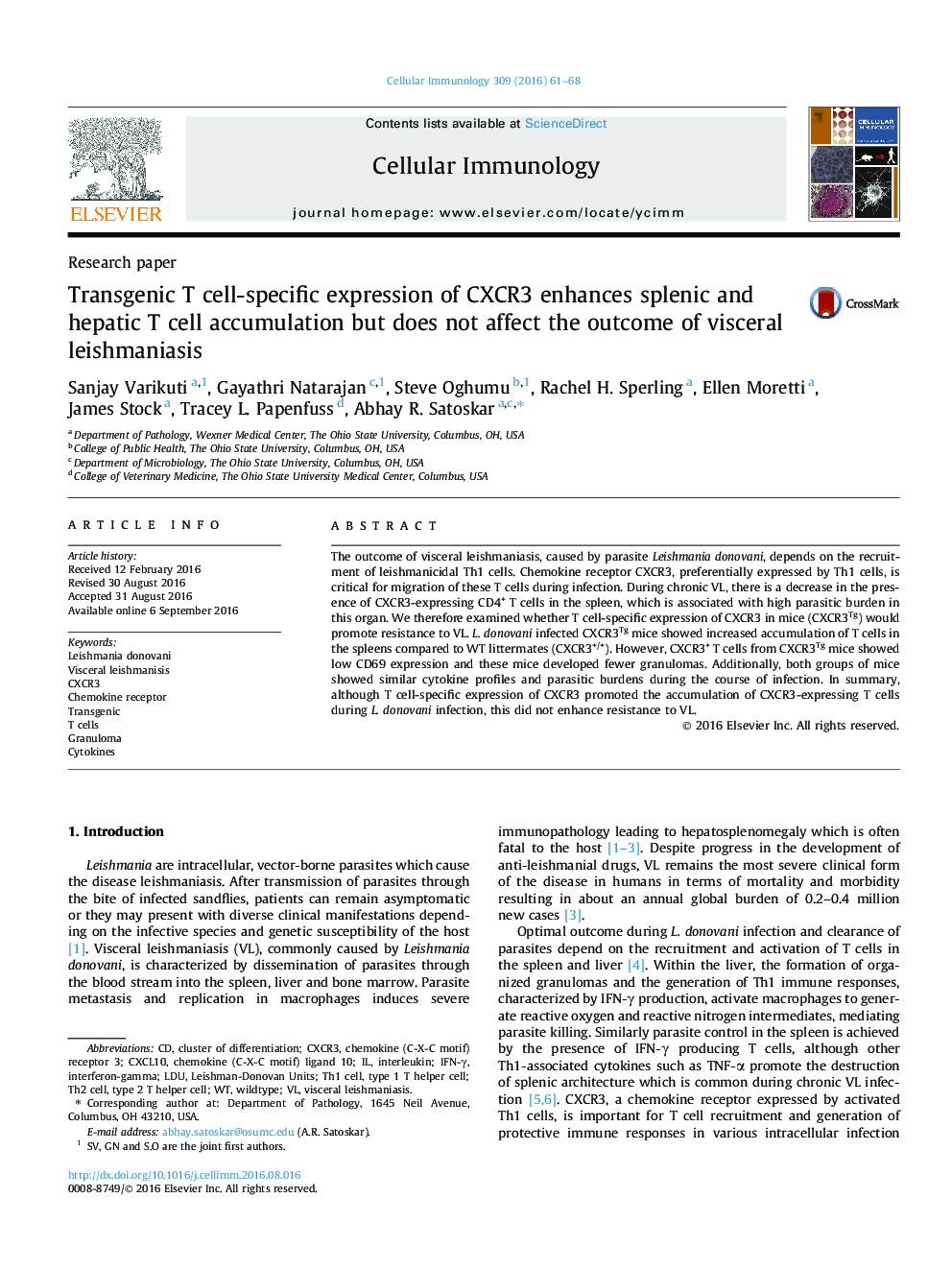| Article ID | Journal | Published Year | Pages | File Type |
|---|---|---|---|---|
| 5530670 | Cellular Immunology | 2016 | 8 Pages |
â¢CXCR3 transgenic mice show increased accumulation of T cells in their spleen following L. donovani infection.â¢Hepatic granuloma formation is impaired in CXCR3 transgenic mice.â¢Transgenic expression of CXCR3 on T cells does not alter Th1/Th2 response during VL.
The outcome of visceral leishmaniasis, caused by parasite Leishmania donovani, depends on the recruitment of leishmanicidal Th1 cells. Chemokine receptor CXCR3, preferentially expressed by Th1 cells, is critical for migration of these T cells during infection. During chronic VL, there is a decrease in the presence of CXCR3-expressing CD4+ T cells in the spleen, which is associated with high parasitic burden in this organ. We therefore examined whether T cell-specific expression of CXCR3 in mice (CXCR3Tg) would promote resistance to VL. L. donovani infected CXCR3Tg mice showed increased accumulation of T cells in the spleens compared to WT littermates (CXCR3+/+). However, CXCR3+ T cells from CXCR3Tg mice showed low CD69 expression and these mice developed fewer granulomas. Additionally, both groups of mice showed similar cytokine profiles and parasitic burdens during the course of infection. In summary, although T cell-specific expression of CXCR3 promoted the accumulation of CXCR3-expressing T cells during L. donovani infection, this did not enhance resistance to VL.
